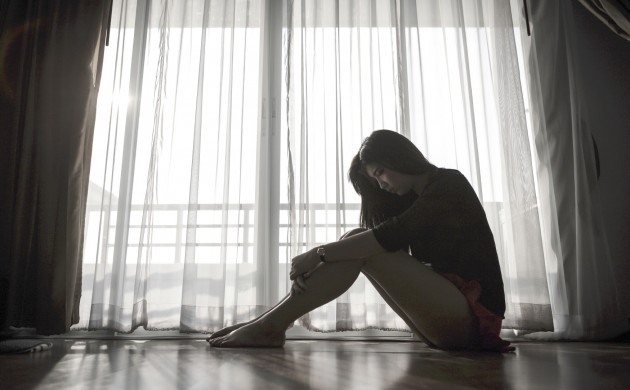World leader in sexual liberation and … rape
Posted by admin on Saturday, June 6, 2015 · Leave a Comment

(photo: iStock) “Often the woman will blame herself for the rape,” Maria Jensen
Reportage rate could be as low as 10 percent while the annual number could be as high as 5,000.Denmark is often singled out for praise when it comes to achievements of gender equality and sexual liberation. Championed as a liberal paradise, issues of rape and sexual violence rarely reach the forefront of political debate.
However, according to a study by the European Union’s Agency for Fundamental Rights, 52 percent of women in Denmark have suffered physical and/or sexual abuse.
Rape is a serious societal issue, and whilst the number of rapes committed each year cannot be confirmed, it is estimated that only between 10 and 25 percent of rapes in Denmark are actually reported
No faith in justice system
Maria Jensen from Joan-Søstrene, an organisation aimed at helping victims of sexual violence, blames Denmark’s prosecution system for the low reportage rate.
“The problem is that the police don’t take victims seriously. Rape is not a priority here in Denmark,” she told the Weekly Post.
“The Danish prosecution system works in such a way that it may take anywhere from five to eight months for a perpetrator to be persecuted. A victim may be raped one day, report her rapist the next and then see the perpetrator at the supermarket a few months later whilst he’s awaiting conviction.
”Rapists rarely strangers
There are a number of conflicting estimates on the occurrence of rape in Denmark. A report from the UN-initiated International Violence Against Women Survey (IVAWS) estimates the number of rapes to be close to 2,000 annually. However, some studies estimate the number to be as high as 5,000.
In the vast majority of cases, the woman and the man already know each other, and studies have found that, in general, a woman is less likely to report a rape if she knows the perpetrator well.
“More than two thirds of cases involve the victim being assaulted by an acquaintance. We commonly find that the perpetrator is the victim’s husband, boyfriend, friend or colleague,” said Susanne Philipson, the CEO of Danner, an organisation aimed at protecting women and children from violence and sexual violence.
Most cases fizzle out
According to studies by Amnesty International, it is virtually impossible for a woman in Denmark to successfully accuse a man of rape if her testimony contradicts that of her alleged attacker. As a result of this, very few reports of rape lead to prosecution, and the large majority of cases are discontinued by police before they reach the courts.
The chances of a successful prosecution drastically decrease in cases where the parties knew each other before the rape, and the Danish Penal Code even provides the possibility for a reduction in the sentence if the victim and the perpetrator are married or in a registered partnership.
Similarly, non-consensual sexual acts with a victim who is in a helpless state are not defined as rape unless the perpetrator is directly responsible for the woman’s state.
“Often, the woman will blame herself for the rape, particularly if there was alcohol or an acquaintance involved,” Jensen said.
“Many victims also choose not to come forward if they themselves are uncertain about what happened or feel like they could not adequately explain the situation to the police.”
Unhelpful police attitudes
Studies of police attitudes suggest the existence of suspicion towards women who report rape.
A recent example of this occurred at Aalborg Karneval on May 23, where Karsten Højrup Kristensen, from North Jutland Police, the head of security at the festival, caused a stir with his comments.
“Five rapes are, of course, five too many,” he told the media. “However, things like this can happen when there are so many people together and the spirits are high.”
Similarly, a study by Amnesty International unearthed similar attitudes, with one interviewed officer stating: “When you go out and talk to the witnesses you find she was dancing on the tables and throwing her clothes around the pub. That doesn’t justify the fact that she was raped – absolutely not. But her behaviour went a long way towards giving those guys certain hopes or
expectations.”
Jensen is appalled by the presence of such attitudes, recognising the need for a re-evaluation when it comes to the prosecution process.
“We often find that the women don’t think it’s worth reporting the rape. The court system seems to favour the man, and women tend to feel they have been treated unfairly during the whole process,” she said.
“In a sense, these women feel like they’ve been raped again – raped by the system, dragging out the process and making it even harder to heal.”
A grey area
Not all experts agree on the matter. As a former police officer, Philipson believes it is not the fault of the system, and rather that rape is a grey area that can be hard to prosecute.“I certainly don’t blame the police for the fact that rape is critically underreported. Rape is and has always been a tough subject for police to investigate, as it is difficult to take things to court if there is a lack of evidence.”
Nevertheless, she recognises the need to re-evaluate the system.
“Something certainly needs to change. The fact that victims don’t feel as if they can come forward means that they are not receiving the help they need, which has a significant impact on both the individual and society.”
Source: Copenhagen Post
Author: Pia Marsh


